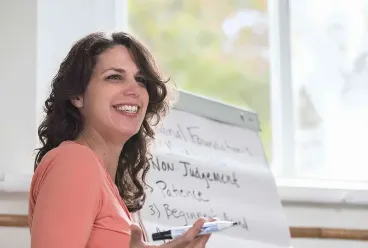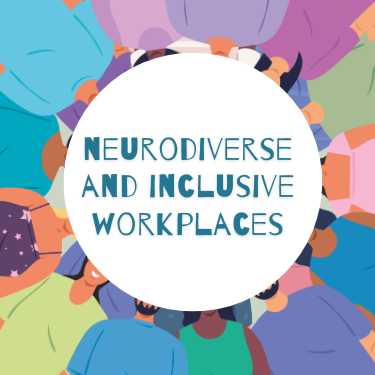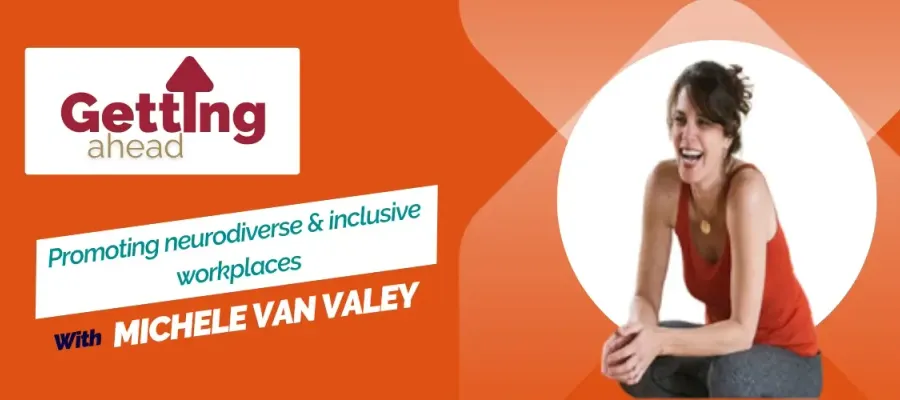Q1. Could you share with our readers a bit about your early career and what initially drew you to work in the field of neurodiversity?
After college, I spent a year working in a music venue. While there, I was invited to intern on some indie films and music videos. The collaborative process on these projects suited my creative side and though I didn't realise it at the time, my dyslexic brain was good at seeing the big picture and anticipating what might come next. It made me valuable in these multifaceted projects and more doors opened for me. Feeling the momentum, I created a popular weekly club event with some friends and used that to fund some other small music businesses, including an independent record label, still not knowing that dyslexic thinkers are born creators and entrepreneurs (Richard Branson, Jamie Oliver, Jennifer Aniston). Dyslexia had always been framed as a difficulty or disorder, so I had no idea that I was capitalising on the positive attributes of the neurotype with my entrepreneurial success. I'm still learning about them today!

Q2. What sparked your passion for promoting neurodiversity in Ireland, and how has this passion evolved and helped shape your career?
In Ireland, my husband and I started a family. During Senior Infants, my youngest began struggling in school. I was told he was too young to test for learning difficulties and that they had an eye on him. Things became more challenging for him at school without support specific to his needs, and his distress at home increased until he was talking about ending his life at nine years old. During the COVID lockdowns, his education was suddenly in my hands, and I knew I needed to do something. Other parents informed me that Irish schools only receive two National Educational Psychologist referrals a year, and private assessment was likely the only way to understand his situation better. It took a year and €750 to be seen by a private Educational Psychologist who diagnosed Dyslexia and then referred him to an OT who, another year later (and another €550 later), diagnosed Dyspraxia. He was referred for Speech and Language (€500 assessment and €1,500 in support sessions), and we started to get a clearer picture of his needs. Since navigating this incredibly emotionally and financially difficult experience, I have seen my story repeated in many families. I can't sit by and watch this scenario on repeat. We need to work to change things for Irish families.
Q3. What has been the biggest change you've seen in relation to neurodiversity and our relationship with it in terms of recruitment?
The thing I notice the most, perhaps because I'm Dyslexic, is that people are actively recruiting Dyslexic thinkers today. This is so exciting!! The skills I wasn’t even aware of when I was building my creative businesses are now recognised as useful, even valuable, by the mainstream. 22-year-olds entering the workforce are proudly naming it on their CVs. GHCQ, the intelligence operation in the UK, actively seeks dyslexic thinking in 20% of their applicants for their ability to see patterns and the bigger picture.
Q4. How do you hope to see the landscape of neurodiversity evolving, particularly in relation to recruitment?
With more awareness around these topics, we are seeing more autistic births, 1 in 44, up from 1 in 200. Some autistic people are maths geniuses, and, like those with ADHD, many have the capacity to forensically analyse documents in a way I would not have the focus for as a big-picture thinker. The value that those with differing neurotypes bring to work environments is beginning to be recognised. So, if we can make room for what some may consider social quirks, like discomfort with eye contact, a need for movement while thinking, or noise sensitivity in open-plan settings, we can move toward a future where a neurodiverse workforce collaborates to produce spectacular results.

Q5. What challenges have you encountered in your own career journey, and can you share a few success stories that highlight the positive impact of neurodiversity initiatives?
I think part of the 'not knowing' what I wanted after Uni came from an insecurity that I might not fit into a skilled workforce, which included people who could spell properly and produce correct sums when budgeting. We have software for those things now, so they aren’t as daunting. Seeing my child thrive in school with appropriate support means all kids can. This is a huge positive if we can get those supports into place for all Irish children and produce more confident learners by embracing different learning styles, one of our goals at Neurodiversity Ireland.
Q6. For employers looking to create more neurodiverse and inclusive workplaces, what advice would you give business owners or hiring managers based on your own experiences and observations?
Learn to be as accommodating and flexible (within reason) as possible. Blanket policies are generally unhelpful - no headphones while working might help some employees focus, while others might do better when they can use headphones to block out white noise or office chat.
Try not to assume what people need. Ask them what helps them thrive at work and you’ll get their best performance.
Some may need to walk and talk rather than have a face-to-face sit-down. Some may learn better by being present and listening attentively, and others may learn better by taking notes to refer to later. Try not to assume what people need. Ask them what helps them thrive at work, and you’ll get their best performance.
Q7. Looking ahead, what trends and developments do you anticipate in the field of neurodiversity, particularly in the workplace, and how can organisations contribute to positive change?
Environments are huge. People are often disabled by an environment that doesn’t meet their needs. Just like a person in a wheelchair may need a lift to access the building, a person with sensory needs may need accommodations to regulate themselves…a quiet space or chill-out room, movement breaks, headphones, and someone to do a quick, nonjudgmental spell check on an important document. Build supportive, equitable attitudes into the culture.
Q8. What is the best career decision you've ever made?
Following my interests and trusting that things would fall into place if I stayed true to my passions.
Q9. If you were entering the workforce again, would you do anything differently?
I’d have believed that my differences were valuable rather than deficiencies and would have leveraged them accordingly. Interestingly though, by following my creative interests without concerning myself with a career choice, I became an entrepreneur, which I loved. I learned that I was capable of building my own work environments rather than trying to fit myself into the ones that already existed, so I wouldn’t want to change that trajectory at all.
Thank you Michele, for sharing your personal experience of neurodiversity and for highlighting the importance of inclusivity in the workplace.
If you'd like to learn more about neurodiversity, visit michelevanvaley.com or neurodiversityweek.com.


